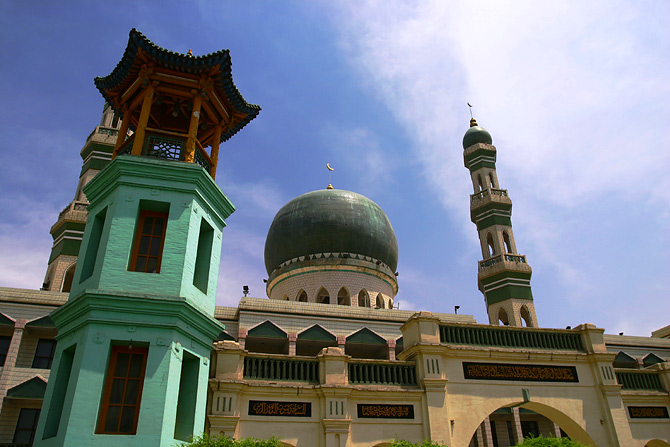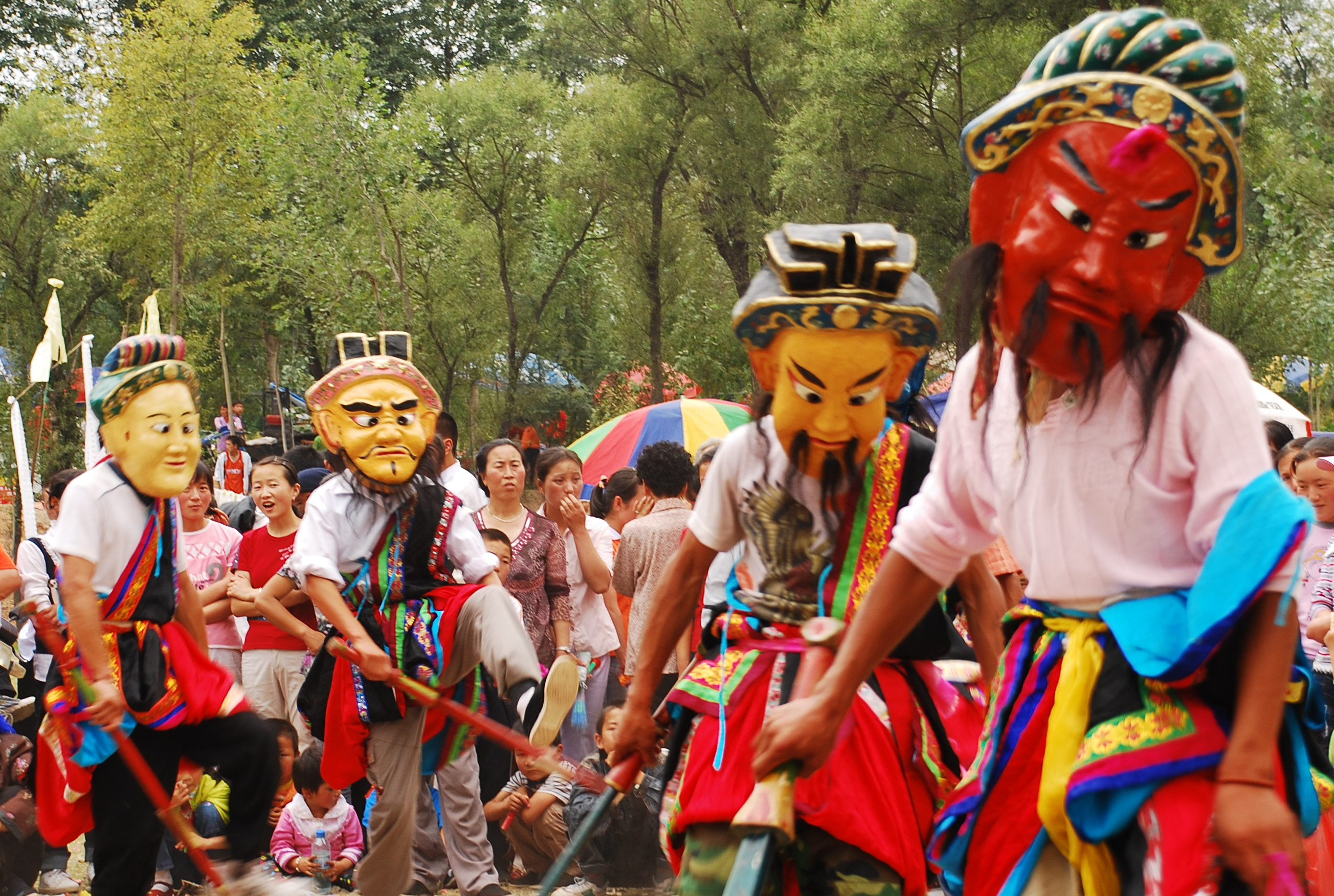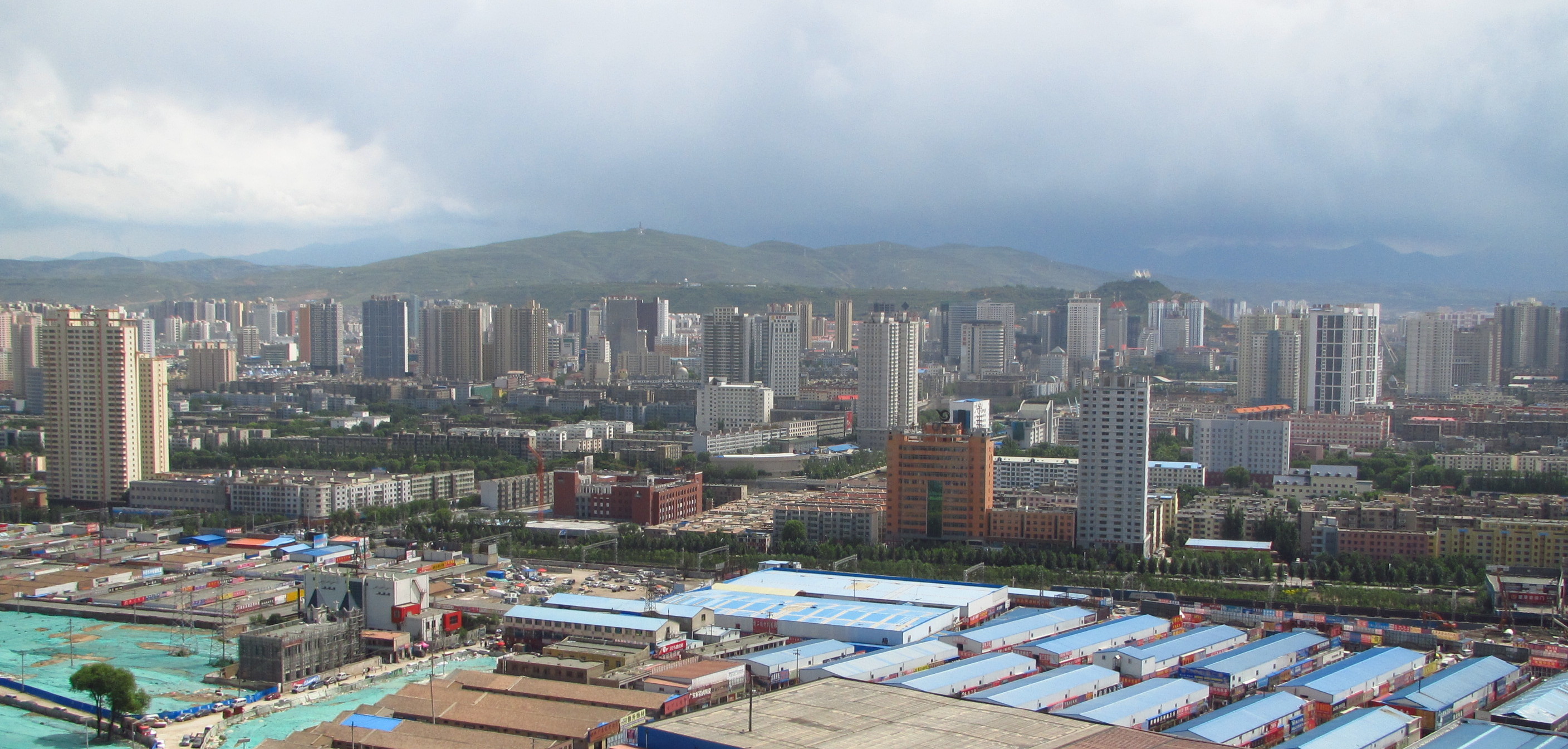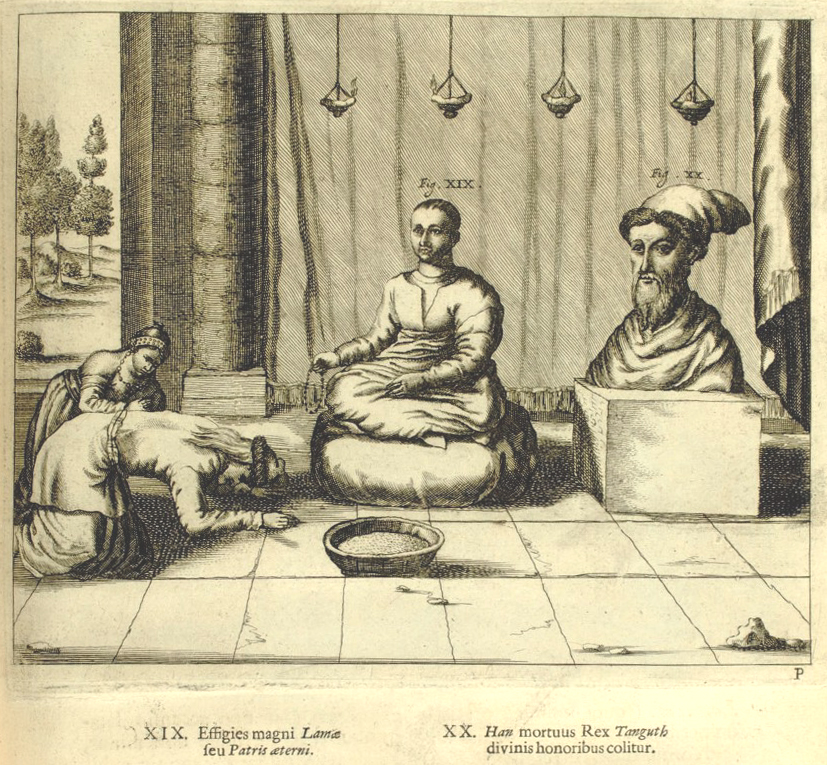|
Qinghai
Qinghai is an inland Provinces of China, province in Northwestern China. It is the largest provinces of China, province of China (excluding autonomous regions) by area and has the third smallest population. Its capital and largest city is Xining. Qinghai borders Gansu on the northeast, Xinjiang on the northwest, Sichuan on the southeast and the Tibet Autonomous Region on the southwest. Qinghai province was established in 1928 during the period of the Republic of China (1912–1949), Republic of China, and until 1949 was ruled by Hui people, Chinese Muslim warlords known as the Ma clique. The Chinese language, Chinese name "Qinghai" is after Qinghai Lake, the largest lake in China. The lake is known as Tso ngon in Tibetan, and as Kokonor Lake in English, derived from the Mongol Oirat language, Oirat name for Qinghai Lake. Both Tso ngon and Kokonor are names found in historic documents to describe the region.Gangchen Khishong, 2001. ''Tibet and Manchu: An Assessment of Tibet-Man ... [...More Info...] [...Related Items...] OR: [Wikipedia] [Google] [Baidu] |
Qinghai Lake
Qinghai Lake is the list of lakes by area, largest lakes of China, lake in China. Located in an endorheic basin in Qinghai Province, to which it gave its name, Qinghai Lake is classified as an alkaline lake, alkaline saline lake, salt lake. The lake has fluctuated in size, shrinking over much of the 20th century but increasing since 2004. It had a surface area of , an average depth of , and a maximum depth of in 2008. Names ''Qinghai'' is the Chinese tones, atonal pinyin romanization of Chinese, romanisation of the Standard Chinese, Mandarin pronunciation of the Chinese language, Chinese name Although modern Chinese distinguishes between the colors blue and green, Blue–green distinction in language, this distinction did not exist in classical Chinese. The color (''qīng'') was Blue–green distinction in language#Chinese, a "single" color inclusive of both blue and green as separate shades. The name is thus variously translated as "Blue Sea", "Green Sea", "Blue-Green Se ... [...More Info...] [...Related Items...] OR: [Wikipedia] [Google] [Baidu] |
Monguor People
The Monguor people ( Monguor: Mongghul), also known as Tu people (), White Mongol or Tsagaan Mongol, are a Mongolic people and one of the 56 officially recognized ethnic groups in China. According to the 2000 census, the total population was 241,198, who mostly lived in the Qinghai and the Gansu provinces. The 2010 census gave their number as 289,565. The Monguor people speak the Monguor language, which belongs to the family of Mongolic languages but has been heavily influenced by both the local Chinese and Tibetan dialects. Today, nearly all Tu people also speak Chinese. Most are farmers and some keep livestock. Their culture and the social organizations have been influenced by Tibetan Buddhism, Confucianism, Taoism and local beliefs. A few Tu in Huzhu and Minhe are Christian, the result of on-going American and Korean missionary work in the area. Ethnic origins The ethnic history of the Monguor is contested. It has been variously suggested that their origins are relate ... [...More Info...] [...Related Items...] OR: [Wikipedia] [Google] [Baidu] |
Xining
Xining is the Capital (political), capital and most populous city of Qinghai province in western China and the largest city on the Tibetan Plateau. As of the 2020 census, it had 2,467,965 inhabitants (2,208,708 as of 2010), of whom 1,954,795 lived in the built-up (or metro) area made of 5 urban districts. The city lies in the Huangshui River, Huangshui River Valley, also known as Tsongkha (Tibetan script, Tibetan: ཙོང་ཁ་), and owing to its high altitude, has a cool climate on the borderline between Semi-arid climate#Cold semi-arid climates, cool semi-arid and dry winter humid continental climate, humid continental. Xining was a commercial hub along the Northern Silk Road's Hexi Corridor for over 2000 years, and was a stronghold of the Han dynasty, Han, Sui dynasty, Sui, Tang dynasty, Tang, and Song dynasty, Song dynasties' resistance against nomadic attacks from the west. Although long a part of Gansu province, Xining was added to Qinghai in 1928. Xining holds sites ... [...More Info...] [...Related Items...] OR: [Wikipedia] [Google] [Baidu] |
Salar People
The Salar people are a Turkic peoples, Turkic Ethnic minorities in China, ethnic minority in China who speak Salar language, Salar, a Turkic language of the Oghuz languages, Oghuz sub-branch. They numbered 165,159 people in 2020, according to that year's national census. The Salars live mostly in the Qinghai–Gansu border region, on both sides of the Yellow River, namely in Xunhua Salar Autonomous County and Hualong Hui Autonomous County of Qinghai and the adjacent Jishishan Bonan, Dongxiang and Salar Autonomous County of Gansu. There are also Salars in some parts of Henan and Shanxi, as well as in northern Xinjiang, in the Ili Kazakh Autonomous Prefecture. They are a patriarchy, patriarchal agricultural society and predominantly Muslims, Muslim. History Origin According to Salar tradition and Chinese chronicles, the Salars are the descendants of the Salur (tribe), Salur tribe, belonging to the Oghuz Turks, Oghuz Turk tribe of the Western Turkic Khaganate. During the Tang dyna ... [...More Info...] [...Related Items...] OR: [Wikipedia] [Google] [Baidu] |
Governor Of Qinghai
The governor of Qinghai, officially the Governor of the Qinghai Provincial People's Government, is the head of Qinghai Province and leader of the Qinghai Provincial People's Government. The governor is elected by the Qinghai Provincial People's Congress, and responsible to it and its Standing Committee. The governor is a provincial level official and is responsible for the overall decision-making of the provincial government. The governor is assisted by an executive vice governor as well as several vice governors. The governor generally serves as the deputy secretary of the Qinghai Provincial Committee of the Chinese Communist Party and as a member of the CCP Central Committee. The governor the second-highest ranking official in the province after the secretary of the CCP Qinghai Committee. The current governor is Luo Dongchuan, who took office on 4 January 2025. List of governors People's Republic of China References {{Regional leaders in China Politics of ... [...More Info...] [...Related Items...] OR: [Wikipedia] [Google] [Baidu] |
Wu Xiaojun
Wu Xiaojun (; born January 1966) is a Chinese politician and the current party secretary of Qinghai and governor of Qinghai. Early life and education Wu was born in Taihe County, Jiangxi, in January 1966. In 1984, he entered Jiangxi University, majoring in political economics. Career in Jiangxi He joined the Chinese Communist Party (CCP) in May 1986, and got involved in politics in July 1988, when he was assigned to Jiangxi Economic Information Center as an official. Beginning in May 1994, he served in several posts in the General Office of Jiangxi Provincial People's Government, including section member, secretary, and deputy director. He was appointed vice mayor of Yingtan in August 2006 and was admitted to member of the standing committee of the CCP Yingtan Municipal Committee, the province's top authority. In June 2010, he became deputy director of Jiangxi Provincial Development and Reform Commission, rising to director in October 2014. He was promoted to be vice gov ... [...More Info...] [...Related Items...] OR: [Wikipedia] [Google] [Baidu] |
Party Secretary Of Qinghai
The secretary of the Qinghai Provincial Committee of the Chinese Communist Party is the leader of the Qinghai Provincial Committee of the Chinese Communist Party (CCP). As the CCP is the sole ruling party of the People's Republic of China (PRC), the secretary is the highest ranking post in Qinghai. The secretary is officially appointed by the CCP Central Committee based on the recommendation of the CCP Organization Department, which is then approved by the Politburo and its Standing Committee. The secretary can be also appointed by a plenary meeting of the Qinghai Provincial Committee, but the candidate must be the same as the one approved by the central government. The secretary leads the Standing Committee of the Qinghai Provincial Committee, and is usually a member of the CCP Central Committee. The secretary leads the work of the Provincial Committee and its Standing Committee. The secretary is outranks the governor, who is generally the deputy secretary of the committee. T ... [...More Info...] [...Related Items...] OR: [Wikipedia] [Google] [Baidu] |
Upper Mongols
The Upper Mongols, also known as the Köke Nuur Mongols or Qinghai Mongols, are ethnic Mongol people of Oirat and Khalkha origin who settled around the Qinghai Lake in so-called Upper Mongolia (present-day Qinghai). As part of the Khoshut Khanate of Qaidam Basin and the Qinghai Lake, they played a major role in Sino–Mongol–Tibetan politics during the 17th and 18th centuries. The Upper Mongols adopted Tibetan dress and jewelry despite still living in the traditional Mongolian ger and writing in the script. History After the disintegration of the Proto-Mongolic Xianbei state, nomadic groups such as the ( Monguor) migrated under the rule of their Khan, Tuyuhun, from their original settlements on the Liaodong Peninsula to the western region of modern Qinghai. The Tuyuhun Empire (284–670) stretched 1,500 kilometers from east to west and 1,000 kilometers from north to south. Although, the Mongols of the Gansu–Qinghai Lake areas under the rule of the Yuan dynasty submi ... [...More Info...] [...Related Items...] OR: [Wikipedia] [Google] [Baidu] |
Chen Gang (politician, Born 1965)
Chen Gang (; born April 1965) is a Chinese politician, currently serving as Party Secretary of Guangxi. Previously he served as Chairperson of Qinghai Provincial People's Congress and Party Secretary of Qinghai. He also served as Party Secretary of the All-China Federation of Trade Unions. He spent much of his career in Beijing, before being transferred to Guizhou as party chief of Guiyang. He then served as Party Secretary of the Xiong'an New Area and Vice Governor of Hebei, and a member of the Hebei provincial party standing committee. Biography Chen was born in Gaoyou, Jiangsu province, near Yangzhou. He attended Yangzhou Normal College (now Yangzhou University) between 1980 and 1984, where he studied chemistry. He then attended graduate school at Harbin Institute of Technology, majoring in applied chemistry and polymer materials. He joined the Chinese Communist Party in 1986. In 1987, he began studying for his doctorate degree in inorganic chemistry at Peking Universit ... [...More Info...] [...Related Items...] OR: [Wikipedia] [Google] [Baidu] |
Salar Language
Salar is a Turkic language spoken by the Salar people, who mainly live in the provinces of Qinghai and Gansu in China; some also live in Ili, Xinjiang. It is a primary branch and an eastern outlier of the Oghuz branch of Turkic, the other Oghuz languages being spoken mostly in West and Central Asia. The Salar number about 105,000 people, about 70,000Ethnologue.comreport for language code:slr/ref> (2002) speak the Salar language; under 20,000 are monolinguals. According to Salar tradition and Chinese chronicles, the Salars are the descendants of the Salur tribe, belonging to the Oghuz Turk tribe of the Western Turkic Khaganate. During the Tang dynasty, the Salur tribe dwelt within China's borders and since then has lived within the Qinghai-Gansu border region. Contemporary Salar has some influence from Mandarin Chinese and Amdo Tibetan. Classification Due to the ethnonym "Salur", which is also shared by some modern Turkmen tribes, linguists historically tried to establish a ... [...More Info...] [...Related Items...] OR: [Wikipedia] [Google] [Baidu] |
Hui People
The Hui people are an East Asian ethnoreligious group predominantly composed of Islam in China, Chinese-speaking adherents of Islam. They are distributed throughout China, mainly in the Northwest China, northwestern provinces and in the Zhongyuan region. According to the 2010 census, China is home to approximately 10.5 million Hui people. Outside China, the 170,000 Dungan people of Kazakhstan and Kyrgyzstan, the Panthays in Myanmar, and many of the Chin Haws in Thailand are also considered part of the Hui ethnicity. The Hui were referred to as Hanhui during the Qing dynasty to be distinguished from the Turkic peoples, Turkic Muslims, which were referred to as Chanhui. The Republic of China (1912–1949), Republic of China government also recognised the Hui as a branch of the Han Chinese rather than a separate ethnic group. In the National Assembly (Republic of China), National Assembly of the Republic of China, the Hui were referred to as 1947 Chinese National Assembly election ... [...More Info...] [...Related Items...] OR: [Wikipedia] [Google] [Baidu] |






